old ugly
40 Cal.
i am bringing this back to the top. so much good info here.
thanks Dave
ou
thanks Dave
ou


Hi Satwel, I have the English fowler on order and since you built one before I have a question if you don't mind? I've been reading Dave Person's writing on the English fusils and he shows that the barrels on these guns didn't use pins to hold the barrel but metal tangs ( brain fart) . When you got you kit from Jim Chamber's what did they give you?I built the Chambers English Officer's fusil about 6 years ago. I am very happy with it. It is light-weight, slender and shoulders nicely and it's fun to shoot. I bought it to use in the smoothbore events at the NMLRA territorial matches. I've won a few medals with it as well as a turkey and a bag of potatoes at a turkey shoot in Maine. So far I've only shot patched .590 round balls. I've yet to fire buck shot. The round faced English lock is first-rate, the barrel has a pronounced taper with dramatic flare at the muzzle. I'm no expert on authenticity, but to me it looks just like the pictures of Dave Person's English Fusils. My only regret is that I didn't install a silver wrist escutcheon when I built it.
Hi Rich. The English Officer's fusil comes with barrel pins. I think this is because it does not have a hooked breech plug and standing breech so the barrel is not easily removable.Hi Satwel, I have the English fowler on order and since you built one before I have a question if you don't mind? I've been reading Dave Person's writing on the English fusils and he shows that the barrels on these guns didn't use pins to hold the barrel but metal tangs ( brain fart) . When you got you kit from Jim Chamber's what did they give you?
Thanks Rich
Hi Dave, just was looking at your tutorial on the fusil and how you did the breech and the hook, I can do that...I think! You mentioned that you were unable to find a proper tang that was high enough to make the hump, I have no way of making one, could you recommend one of the ones you tried that would be the best of the lot?Hi Rich,
Those "tangs" are called barrel keys. By the 1750s most good quality English sporting guns had barrel keys along with hooked tangs and breeches (also called break off breeches, standing breeches, false breeches). It was a system designed to allow easy and quick barrel removal for cleaning. After 1750 or so only British military, livery, and cheaper trade guns used pins. Even modest quality sporting guns had standing breeches and barrel keys. If I was building a Chambers English fowler, I would cut off the barrel tang and file the bolster into a hook. Then I would make or buy a proper standing breech from TRS and install it. I'd replace all the barrel lugs with slotted lugs for keys and make or buy 3 barrel keys. Hooked breeches are not hard to inlet if you glue or solder the tang to the hook while inletting.
dave
After planning on it for a long time, I was just about ready to order a Pennsylvania Fowler kit from Chambers for this winter until I decided that I wanted a fowler that had a little less in common with my last build which was a Lancaster rifle. That left me with the English Fowler/Officer's Fusil and the New England Fowler/Militia Musket kits as runners up. For the past few weeks I've been torn between the two and could use some insight. Winter is coming quickly and if I don't make up my mind soon I am liable to spend it remodeling another bathroom.
I am not a re-enactor and don't have any strict PC requirements; however, I live and hunt in southeast and central PA and I like the idea of a fowler with lineage to what might have been used in these parts during the middle of the 18th century when this was the frontier. I also have ancestors who came over from Germany and England and although I don't know many details about when or where, the idea of a gun that would be similar to what one of my ancestors might have carried on the frontier is alluring. I know that British style fowlers were made in and around Philadelphia, but would a NE style fowler have been common in this neck of the woods during the middle of the 18th century?
Some other practical considerations include 20 gauge for the Fusil vs 10 or 12 for the NE (11 gauge is not currently available). Having two flintlock rifles, I don't plan to shoot much round ball with the fowler, so there is the "which bore is better as a dedicated shotgun" debate. I do plan to hunt small game and upland birds including turkey.
As for length, the Fusil is 57" and the NE is 62" overall. My Lancaster rifle measures just about 60" which can be a bit awkward transporting in vehicles or fitting in my ground blind, so I like that 57" seems more portable. Then again if we're talking fowlers, most of the originals were much longer than even the NE. And admittedly, how well a flintlock muzzleloader fits in a Toyota should be pretty far down the list of important considerations. But at 57", does the English Fowler/Officer's Fusil really pass for a true representation of a common fowler as the first part of its namesake might imply, or is it more of an aristocrat's gun that would have been relatively rare in those days?
Howbout balance and handling? Unfortunately, I haven't had the opportunity to try either one on. Both are similar in weight; the 10 gauge barrel weighs about 3/4 lb less than the 12 according to Chambers. I would probably go with the 10 to save that weight so either finished gun would come in around 7-3/4 lbs. Does one handle or balance particularly different than the other? Howbout for swinging at birds on the wing?
Anyway, these are just some of my thoughts. I'd appreciate hearing from anyone who owns or who is familiar with either of these guns and what your thoughts are. Why did you choose yours and how do you like it?
I don't have the kit as yet, trying to get all the goodies I'll need but the gauge is16.Hi Rich,
It does not have to have the hump but you can get one from TRS that does. Can you tell me the breech dimension of the barrel on your fowler?
dave
Hi Dave, I looked at the TRS web site and they carry a breech for a 16 ga,, # 662-BRT-16 for $19.95 (or what use to sell for!), does that look like the one to use?Hi Rich,
It does not have to have the hump but you can get one from TRS that does. Can you tell me the breech dimension of the barrel on your fowler?
dave
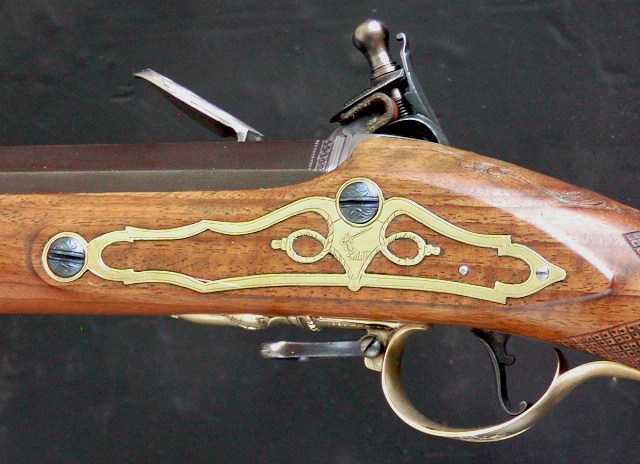
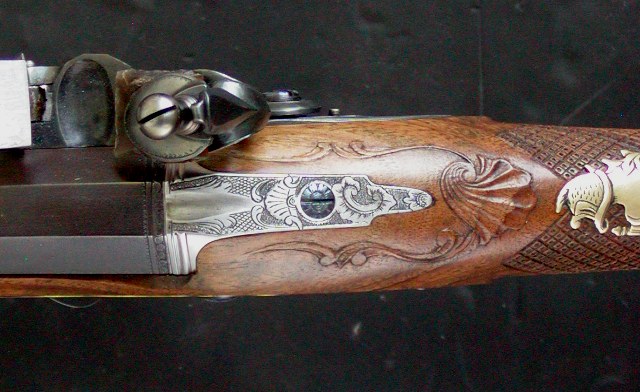
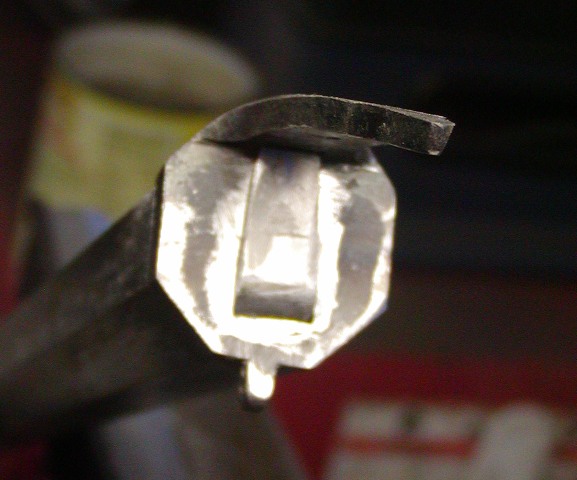
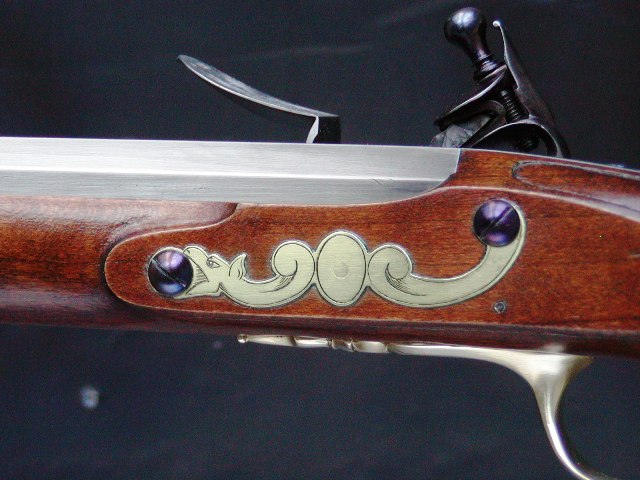
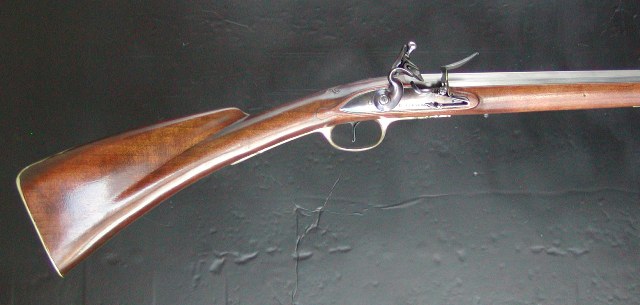
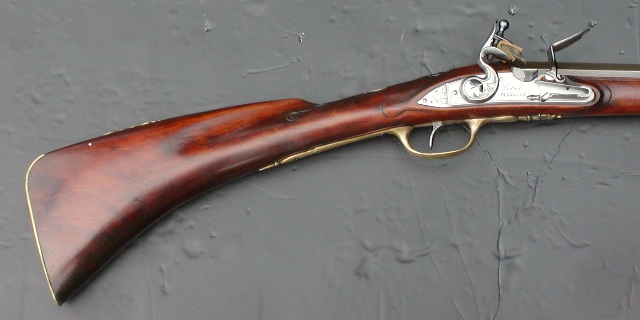
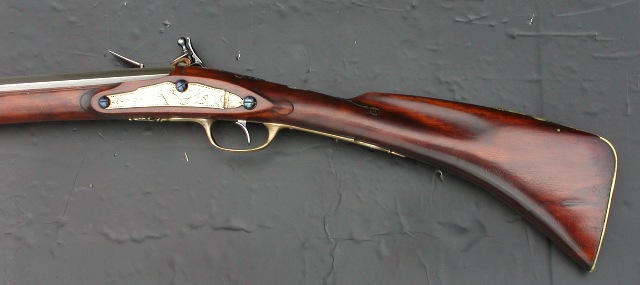
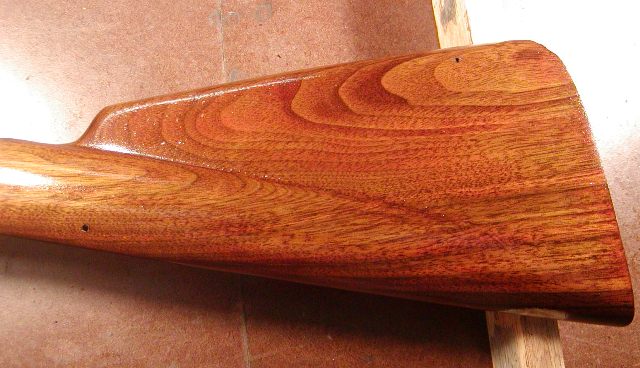
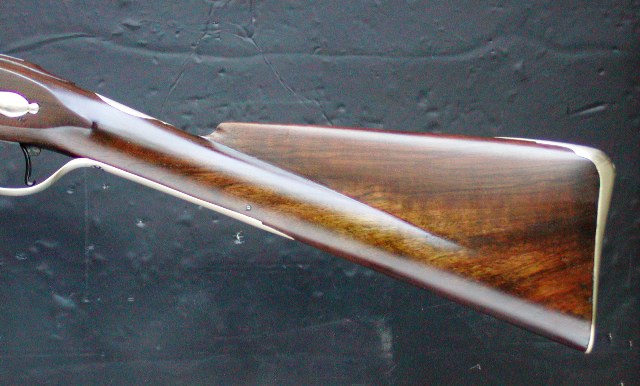
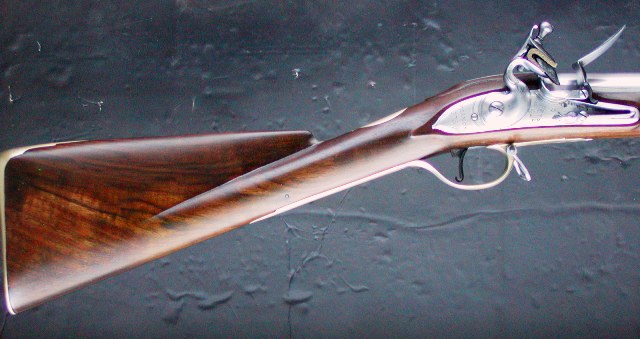
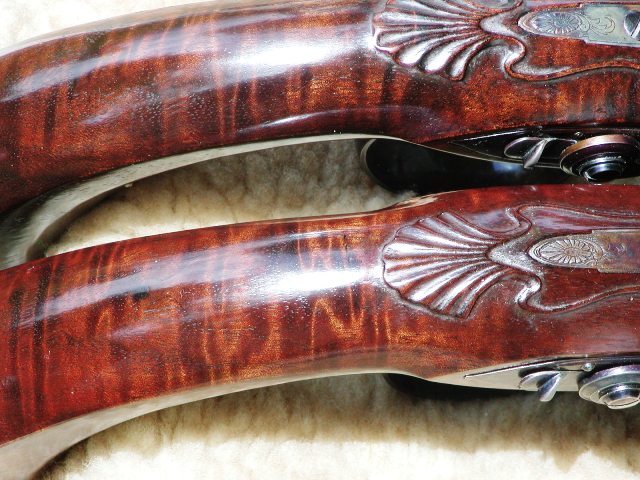
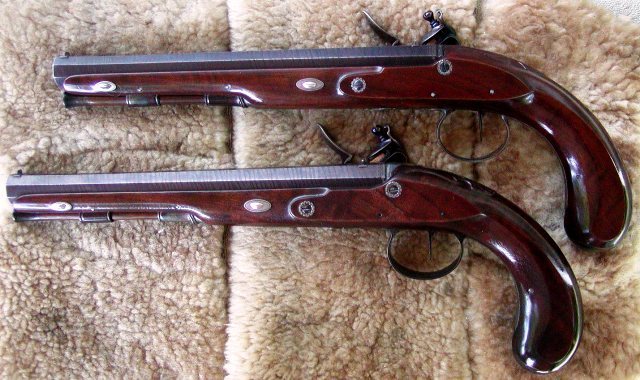
Hi Bud, I've been up to that area just to check it out, great history that seems to get over looked!I am attempting to build a New England fowler. I don't reenact and not worried about HC gun. But I often wonder couldn't there be NE fowlers in PA due to the fact that north easter PA was settled by families from Connecticut . The town of Forty Fort, the site of the Wyoming massacre was named for the forty original Connecticut families who built the fort.